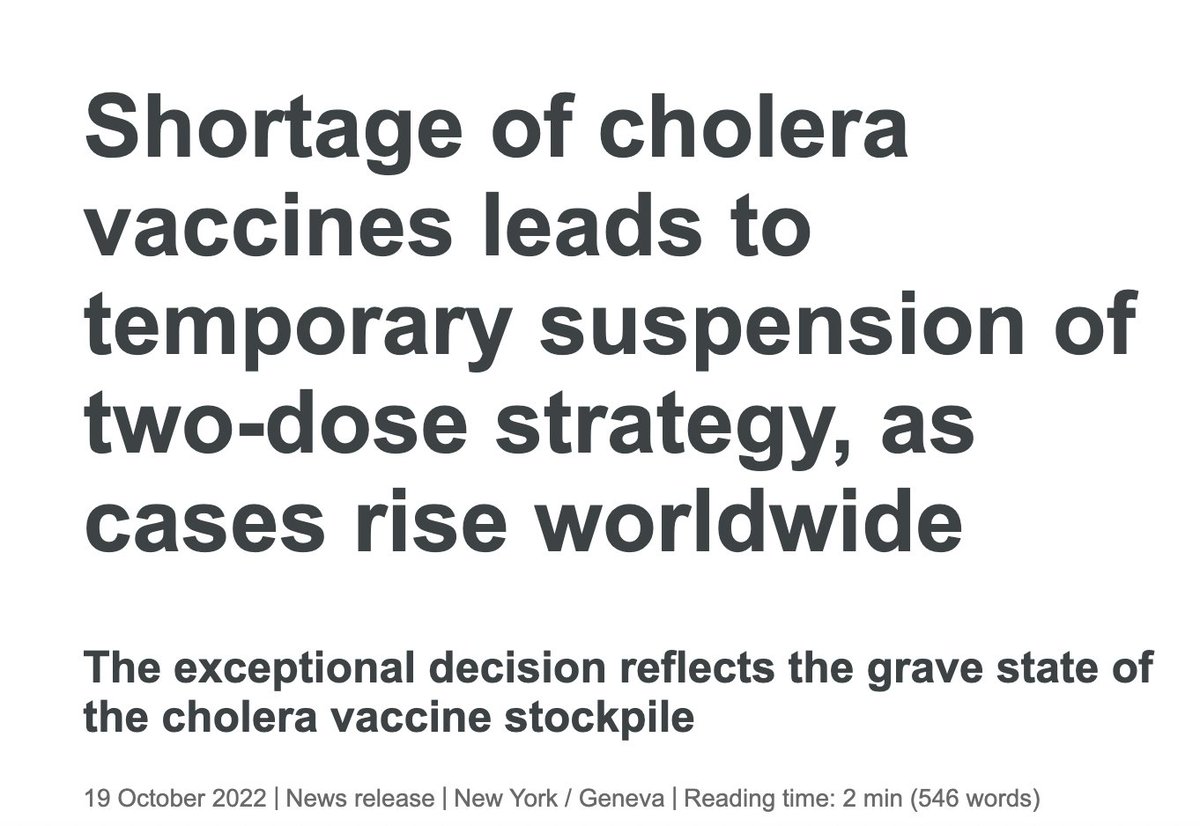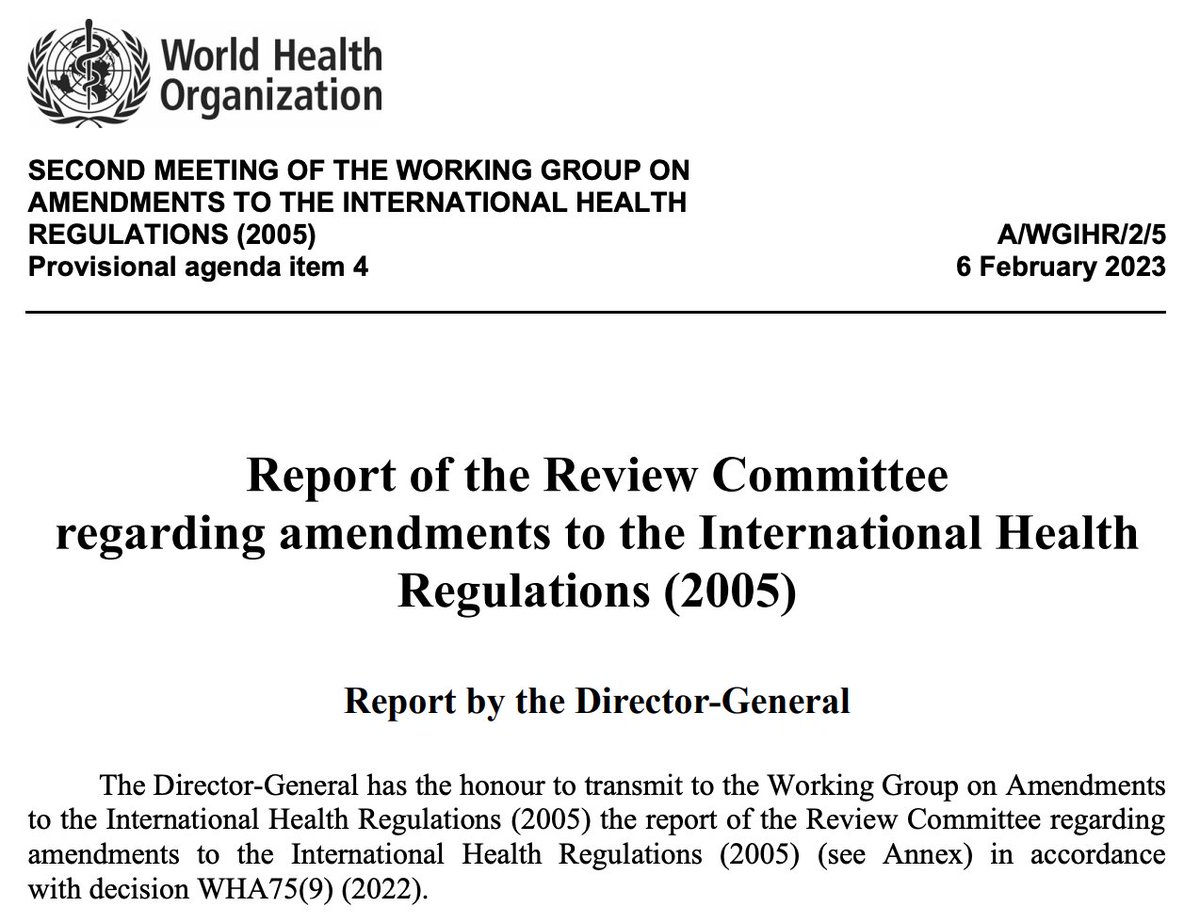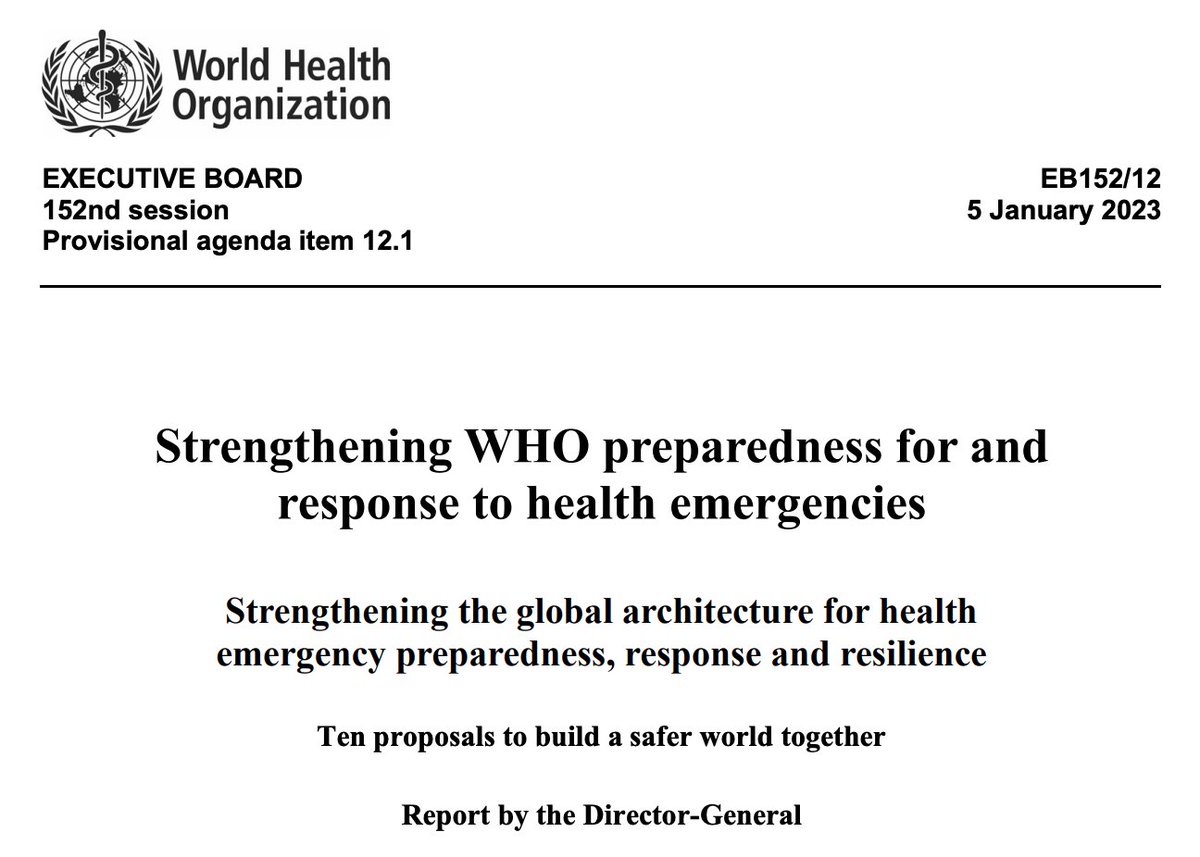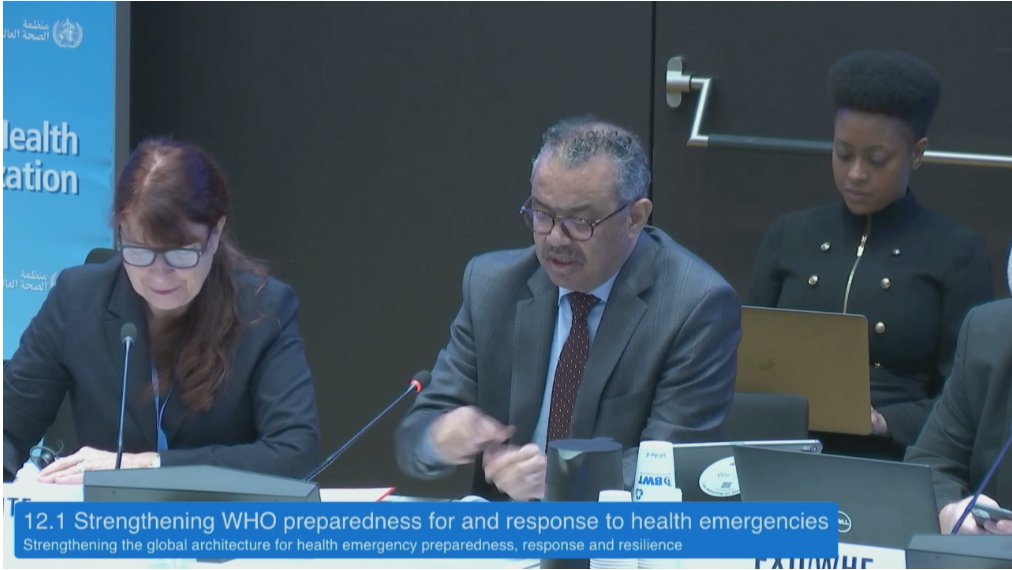
💥Deadly #cholera outbreak continues in Malawi.
According to WHO, there have been nearly 37,000 cases and over 1200 associated deaths.
Every distinct is affected.
In the face of the deadliest cholera outbreak in the country’s history, vaccines are in (too) short supply.
🧵
According to WHO, there have been nearly 37,000 cases and over 1200 associated deaths.
Every distinct is affected.
In the face of the deadliest cholera outbreak in the country’s history, vaccines are in (too) short supply.
🧵

Prompted by a severe vaccine shortage, in Oct 2022, the International Coordinating Group on Vaccine Provision (ICG), which allocates cholera vaccines to affected countries, announced that it would provide a single-dose regimen instead of two. 

A long list of countries report cholera outbreaks.
🗺 Afghanistan, Bangladesh, Burundi, Cameroon, DRC, the Dominican Republic, Haiti, Iraq, Kenya, Lebanon, Malawi, Mozambique, Nigeria, Philippines, Somalia, Syria, and Tanzania.
❌There are not enough vaccines to go around.
🗺 Afghanistan, Bangladesh, Burundi, Cameroon, DRC, the Dominican Republic, Haiti, Iraq, Kenya, Lebanon, Malawi, Mozambique, Nigeria, Philippines, Somalia, Syria, and Tanzania.
❌There are not enough vaccines to go around.

Because of limited profitability, vaccine manufacturers have never prioritised cholera vaccines.
While there are currently 3 WHO-prequalified suppliers, one is set to end production this year.
Access to clean drinking water and sanitation is also key for prevention and control
While there are currently 3 WHO-prequalified suppliers, one is set to end production this year.
Access to clean drinking water and sanitation is also key for prevention and control

• • •
Missing some Tweet in this thread? You can try to
force a refresh



















